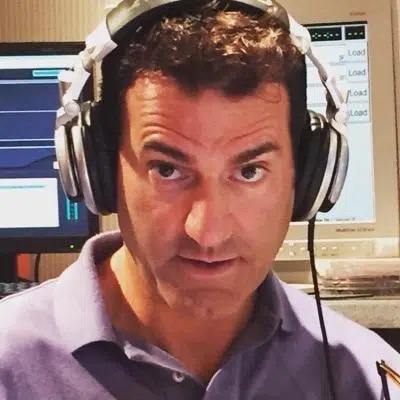By Andrei Makhovsky
MINSK (Reuters) – For theatre director Pavel Latushko, the sight of detainees emerging from prison with bruises and complaining of punishment beatings convinced him to join mass protests against the Belarus government he once represented.
Soon after he was sacked for his defiance, his troupe of actors handed in their resignations in solidarity.
The 47-year-old had served in President Alexander Lukashenko’s government as ambassador to Poland, France and Spain and as the spokesman for the foreign ministry. Since 2019 he has been the head of Minsk’s oldest theatre.
But a crackdown following Lukashenko’s disputed presidential election victory last week, in which at least two people were killed and thousands more detained by police during violent street clashes, was the point of no return.
“In the life of every person there comes a line that cannot be crossed,” he told Reuters on Tuesday.
“That moment came for me when I saw people coming out of prisons, talking about the violence against them. I became ashamed. I considered it my moral duty to express my position.”
Latushko was fired from his post as director of the 19th century Janka Kupala National Theatre after speaking out against the government, and the theatre has become a flashpoint for the demonstrations.
Red-and-white opposition flags hung from the building on Tuesday as hundreds gathered outside waving placards, chanting excerpts from popular plays and poems and yelling “shame” as Culture Minister Yury Bondar arrived to discuss the upcoming season.
For the actors and their supporters, Latushko’s sacking was a symbol of the clampdown on dissent following an election that the opposition says was rigged.
RESIGNATION AFTER RESIGNATION
Footage shared by local media outlet tut.by showed Bondar on stage inside the theatre being harangued by members of the troupe demanding that Latushko be reinstated.
Bondar said the theatre should not be turned into a “political club”.
He added that the state had promoted the arts and increased funding since last year. Asked about Latushko, he replied that an employer had the right to sack an employee.
One after another, the company of actors slammed down a resignation letter on the stage in front of him and shouted “go away”. The protesters outside cheered as actors emerged after handing in their resignation.
“We cannot work in a state where people are humiliated and beaten,” one person was heard shouting from the audience.
Actor Sergei Chub said the troupe knew there would be consequences once Latushko began speaking out against the authorities.
“We agreed straight away that if they fire the director we’ll leave straight after him,” he told Reuters.
Latushko is one of a number of public figures, from TV presenters in the tightly controlled state media to the Belarusian ambassador to Slovakia, to join protests that have become the biggest challenge to Lukashenko’s 26-year rule.
He denies rigging the election and has compared the protesters to criminals in cahoots with foreign backers.
The government has also denied that any of the thousands of people who were detained in protests last week were abused.
Latushko was further alarmed when he was told by the government to stamp out any rumblings of discontent. He fears he could receive further punishment from the authorities but is staying in Minsk.
“How can I suppress the right of people to express their position?” he said. “If we are silent now we will come to a situation where any person can be subjected to violence by law enforcement agencies.”
(Additional reporting by Natalia Zinets in Kyiv; writing by Matthias Williams; Editing by Mike Collett-White)




